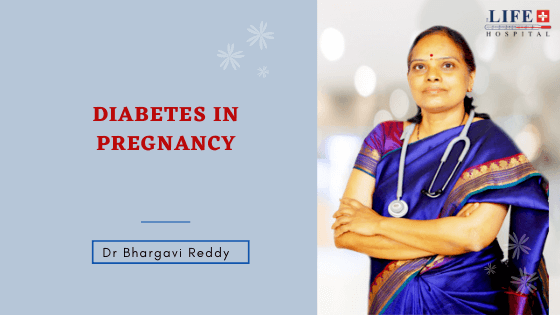
Best Diabetologist in Indiranagar | The Life+ Hospital
So many women have asked ‘I am not diabetic, do I have a risk of diabetes after conceiving? ‘
Some women might be diabetic before they get pregnant. This is pre-gestational diabetes. Others might become diabetic after getting pregnant, which is gestational diabetes.
The way a woman’s body uses glucose might get changed due to pregnancy, making existing diabetes worse, or causing gestational diabetes.
Hope you know about the organ, called ‘placenta.’ It provides nutrients and oxygen to the growing baby. But did you know, this organ also generates estrogen, cortisol, and human placental lactogen hormones? These hormones sometimes block the secretion of insulin during late pregnancy. The result is glucose can’t pass to the body cell, rather it remains in the blood making the blood sugar level higher.
But don’t be so afraid. 18% percent of pregnant women experience gestational diabetes and only 7% faces complications. Those, already having diabetes should be more careful during pregnancy.
Overweight women are more likely to get affected by type 2 diabetes. In such cases even if the woman doesn’t have pre-gestational diabetes, the chances of gestational diabetes become 2 times more.
Women above the age of 25 years bear a bit greater possibility of gestational diabetes. Apart from that genetic factor also plays a vital role. If you have a family history of type 1, 2, or gestational diabetes, then chances are more to get diabetic during pregnancy. If you got gestational diabetes during a previous pregnancy, you will be always at high risk throughout all the latter pregnancies.
Symptoms
If you are non-diabetes, from your side, you can’t identify any symptoms. Only a glucose screening test can reveal this.
I always suggest all my patients for a gastronomical diabetes test between 24-28 weeks of pregnancy. For this screening, you have to take a glucose drink and get tested for blood glucose levels after 2 hours. In case your blood glucose level is found high, then a 3-hour glucose tolerance test is done. If your second test report indicates the same, then you are a gestational diabetic.
Treatment
The treatment focuses on keeping the glucose level on the normal range. Common treatment includes:
Choosing diet wisely: Keep three things in mind. What to eat? How much to eat? When to eat? I would suggest consulting a dietitian for this purpose because while you are pregnant you have to take care of what you like and what is good for your baby at the same time. The three basic food groups, fat, protein, and carbohydrate must be well-balanced in your diet chart.
Exercises: As I already told in my last session of ‘’exercises in pregnancy’, physical activity helps you to maintain blood glucose levels, so try to keep your body physically active. The active body demands less amount of insulin to transport glucose. In the case of gestational diabetes lower insulin resistance is a plus point.
Blood glucose monitoring: Keep track of your blood glucose level on regular basis.
Medication and insulin injections: My suggestion is, try your best to maintain your blood glucose level through exercises and diet. If still it remains unmanageable, then only opt for oral medication or insulin injection. I must mention here that current day’s medications in this regard do not have any negative effect on your baby. Still, natural ways are the best solution and ensure least complications.
So many women have asked about the effect of diabetes during pregnancy on babies.
Yes, this affects your baby at birth and right after birth as well.
Mcrosomia. This makes your baby big and extra fact.
Low blood glucose or hypoglycemia. If your blood glucose level has been high for a long time then inside the womb, insulin supply to the baby’s blood remains so high. The baby gets the required level of glucose delivered from mother. But once he/she is out of the womb then the insulin level in the blood remains high but no more glucose supply from mother.
Respiratory distress syndrome. Right after birth, the baby might experience difficulties in breathing but it goes away once the lungs become stronger.
Development problem. There remains a risk of motor skill and language development problems in babies whose mothers had gestational diabetes.
Diabetes during pregnancy can’t be prevented. We have no option other than managing them so it’s better to maintain a healthy diet, an adequate amount of physical activities from the beginning of the pregnancy plan.
